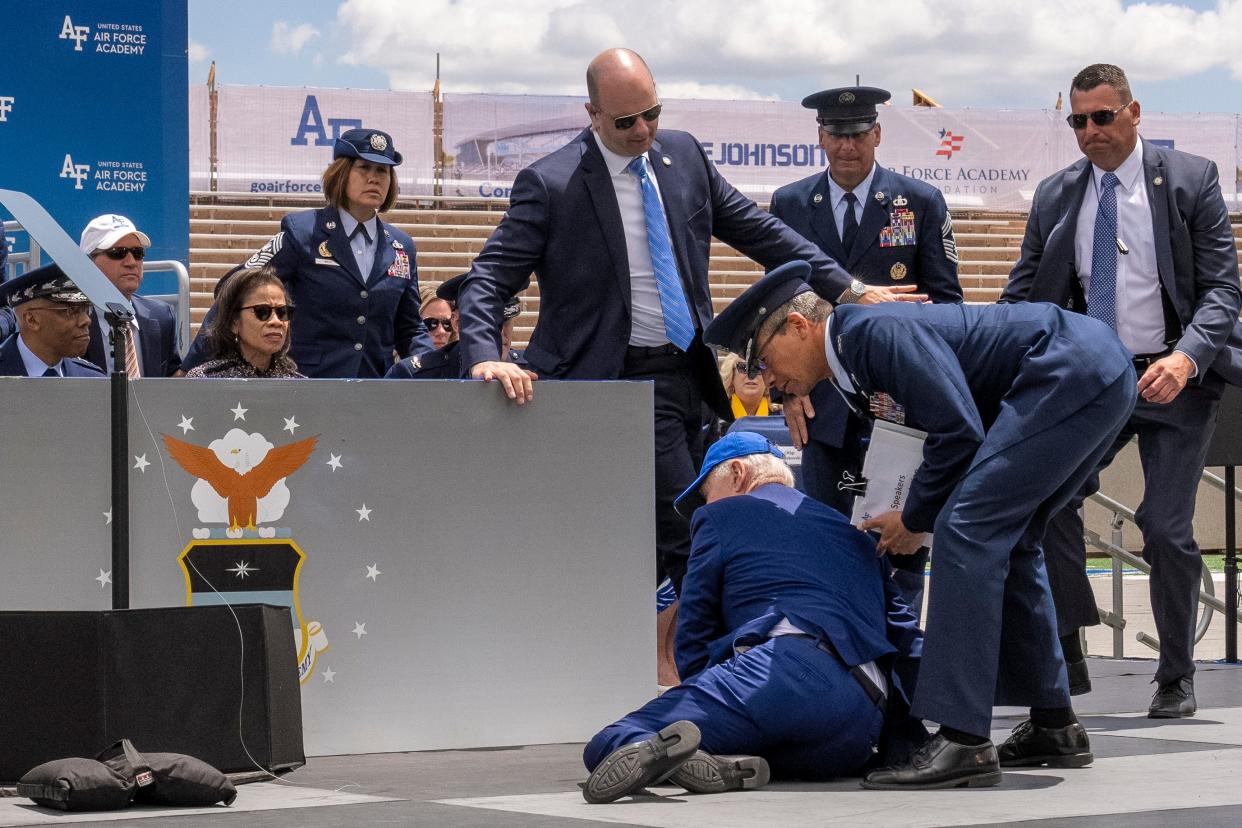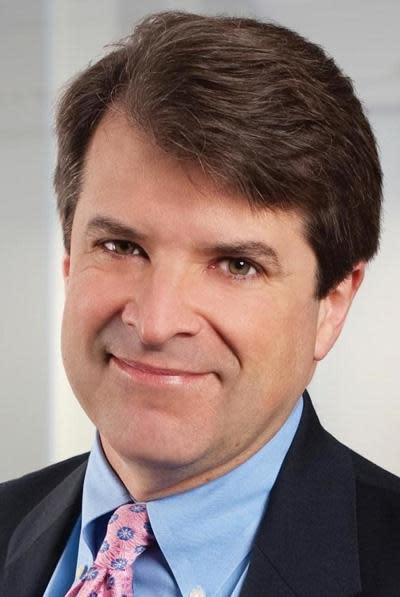Murphy: Term limits? What about having presidential age limits?

- Oops!Something went wrong.Please try again later.
- Oops!Something went wrong.Please try again later.
- Oops!Something went wrong.Please try again later.
This is a commentary by Mark Murphy, a local author and physician. He is a longtime contributor to the Savannah Morning News.
On January 20, 2025 — roughly one year from now — Donald Trump will be 78. Joe Biden will be 82. That would make them 82 and 86, respectively, by the time their four-year terms of office end. Either man, at the time of his inauguration, would be the oldest president in U.S. history.
To put that into perspective, the average life expectancy for an American male is 77 years. From that vantage point, both men are living on borrowed time. Based upon actuarial data derived from the U.S. Social Security Administration, the odds of either man surviving to the end of their term are approximately 66%. In addition, there’s a 5-7% annual risk of dementia developing in either man — or a cumulative risk of about 20-30%.
More: Murphy: My father's death is also a reminder of the miracles of life
So, assuming some overlap in probability, if either Donald Trump or Joe Biden were elected as our nation’s next president, the likelihood of death or dementia almost certainly exceeds 50%.
I’m a physician. Every day, I perform procedures and make life-and-death decisions regarding my patients. At age 61, that’s not generally a big deal. But would you trust the consistency of that procedural and/or decision-making expertise to the average octogenarian?
I wouldn’t.
So now, we are considering entrusting the welfare of the world’s largest economy and its most lethal military to two old men?
In the last few years, we have witnessed the decline and ultimate death of Sen. Dianne Feinstein, as well as multiple health concerns regarding 81-year-old Sen. Mitch McConnell, who recently froze for about 20 seconds during a televised press conference. There are still four senators who are over 80, and more than half of the U.S. Senate is over 60.
There’s a minimum age for being a U.S. president. It’s 35, a number set by James Madison and the others who drafted the U.S. Constitution in 1787, presumably to allow a certain level of maturity required for good governance. But there’s no upper age limit for the presidency — and I would argue that advancing age is a greater potential impediment to good governance than youth.
When Ronald Reagan left office in January 1989, he was 77 after serving two terms. At the time, he was the oldest sitting U.S. president in history, surpassing Dwight D. Eisenhower, who left office at 70. In 1994, at 83, Reagan was diagnosed with Alzheimer’s dementia, and he ultimately died of the disease in 2004, when he was 93.
Obviously, not all individuals are created equally. Just as there may be individuals under 35 with the maturity and experience to be president, there are certainly many older individuals with the physical and intellectual wherewithal to conduct themselves admirably in the nation’s highest office.
But the U.S. presidency is arguably the most difficult job in the world, a physically and mentally demanding role fraught with responsibility and imbued with tremendous inherent risks. Those risks involve not only the individual in the Oval Office but also each of the world’s 8 billion people. Is it worth the roll of the dice to elect an individual as president who has a statistically higher probability of being dead or disabled by the end of their term in office than of being alive and functional?
I think not.
A recent You.gov poll revealed that 58% of those surveyed supported a maximum age limit for U.S. elected officials. A plurality of those who supported an age limit (39%) said it should be 70. A survey by the Pew Research Center was even more explicit, with 79% of Americans (76% of Democrats and 82% of Republicans) favoring age limits on elected officials in Washington and 74% (82% of Democrats and 68% of Republicans) favoring age limits on Supreme Court justices.
The median age of the heads of government among the 187 nations that are member states of the United Nations is 62. Joe Biden is the ninth oldest leader of any nation in the world. Donald Trump, if elected, would be older than the heads of state of all but 20 nations.
The risks of having an aging U.S. president are obvious. Age-related structural changes to the brain are inevitable, resulting from the literal loss of brain cells (neuronal death), loss of synapses, and dysfunction of neural networks. One typically associates the advancement of age with memory loss, but the most important age-related changes involve cognitive tasks that require speed of information processing, a skill vital to decision-making.

The ability of the brain to respond to novel ideas, distinguish between relevant and irrelevant information, engage in concept formation and abstraction, and overall mental flexibility decline with age, particularlyafter age 70.
Currently, the only means of imposing an age limit for elected officials would be via a constitutional amendment. Such an amendment would require either a two-thirds vote by both the U.S. House and the Senate, followed by ratification by two-thirds of all states, or a convention called by Congress of two-thirds of all states requesting a proposed amendment.
However, the latter method has never been used, not even once, in our nation’s history. Based on the above, it seems unlikely that we will avoid electing the nation’s oldest president in 2024. However, it might behoove Congress to consider constitutional age limits for nationally elected offices — lest we face a similar Hobson’s choice in the future.
This article originally appeared on Savannah Morning News: Murphy: Why having octogenarian presidents should be ancient history

